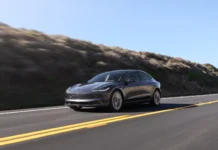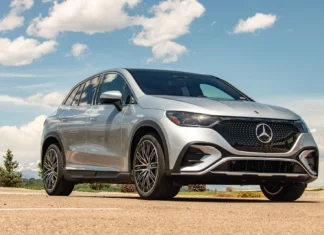
[poll id=”3″]
A new proposal ending the federal EV tax credit could spell trouble for electric car growth in the U.S.
If you’re looking to buy go electric with the help of the government’s $7,500 tax credit, you may soon be out of luck. House Republicans have just revealed a bill to eliminate the tax credit for electric vehicles. Should it pass into law, the bill would immediately repeal the EV tax credit that manufacturers have relied on to shift units. While it may be awhile before we see the effects of this bill (if it goes through at all), it could mean trouble for the EV market here in the United States.
Almost every automaker is forging ahead, as we reported last month. Even in the wake of losing this tax credit, manufacturers have committed billions of dollars to EV development. For instance, GM has pledged to bring out at least 20 new electric cars in the next five years. Nissan has refined its Leaf for 2018, and is planning to add to its lineup in the coming years. And, of course, we all know the hype surrounding the Tesla Model 3.
The way the credit currently works is as follows: There’s a $7,500 credit on the table until the automaker manufactures 200,000 units. From there, the credit to buyers is cut in half for six months ($3,750). Then, another six months later, it’s halved again, and so on and so forth until it’s eliminated. For any manufacturer planning to build electric cars, any credit translates to a boost in sales that is designed to bring EV pricing down to a similar level as gas-powered cars. However, getting rid of the EV tax credit makes the car massively more expensive to buyers. Sales can then crash as a result. There’s some evidence suggesting that’s the case in states that have axed their EV tax credit.

Some states are mandating a certain percentage of automakers’ output must be electric vehicles.
Aside from eliminating the EV tax credit, some states are also requiring automakers to shift toward zero-emission cars. If they don’t reach the mandated target in a certain time frame, they’ll have to purchase credits from companies with larger green footprints. That could be a big problem for automakers. As it stands, the EV tax credit currently drives a significant portion of demand for electric cars. Without it, automakers will have to lower prices to move units. As electric cars haven’t fully taken off just yet, lower prices mean lower profit margins (or bigger losses), and fewer units to meet growing EV demand.
Now, that mandate isn’t an issue for manufacturers like Tesla, who only makes electric cars. However, if the tax credit goes away and manufacturers have to lower prices to maintain demand, that could mean big trouble for the company. Tesla recently reported a loss of $619 million in its Q3 2017 earnings call. In other words, Tesla is currently losing over $23,000 on each car it sells. Demand for the Model S and X are falling, as are gross margins.

For the time being, some states may still offer their own incentive programs to push electric cars. Nevertheless, any elimination of the federal tax credit will surely hurt sales. What do you think about the plan to eliminate the tax credit? Would you buy an electric car without one? Let us know in the poll above and in the comments below!
























